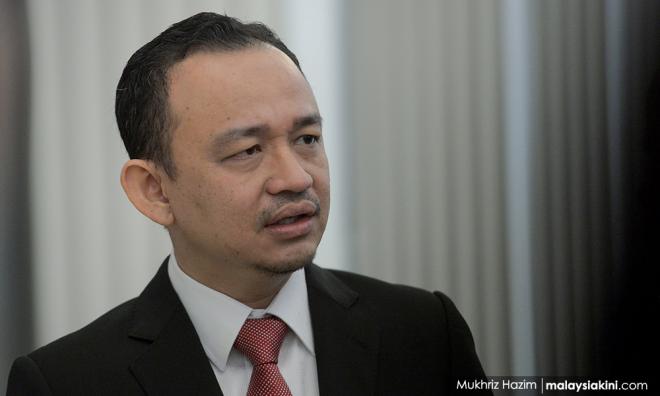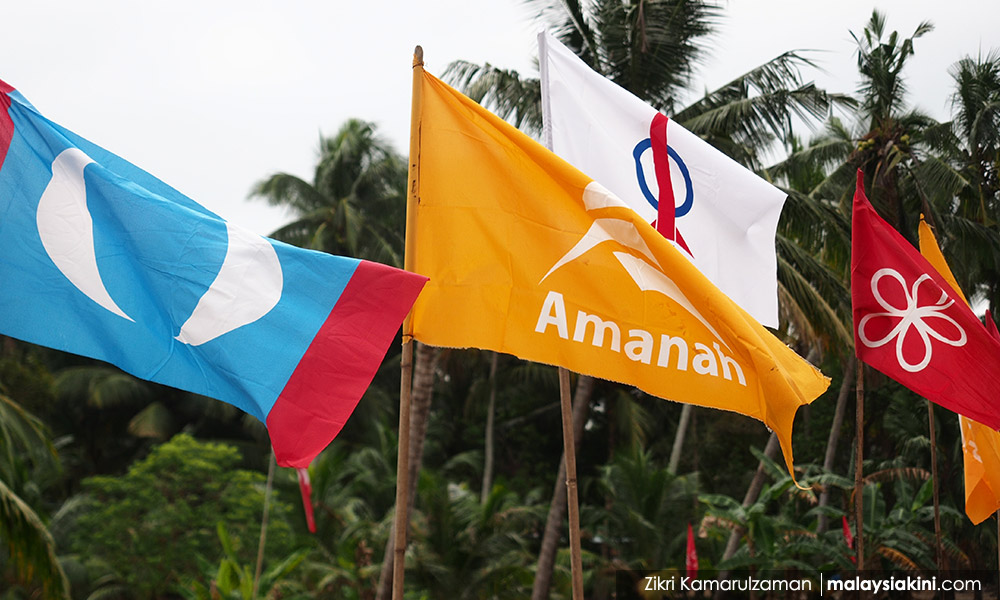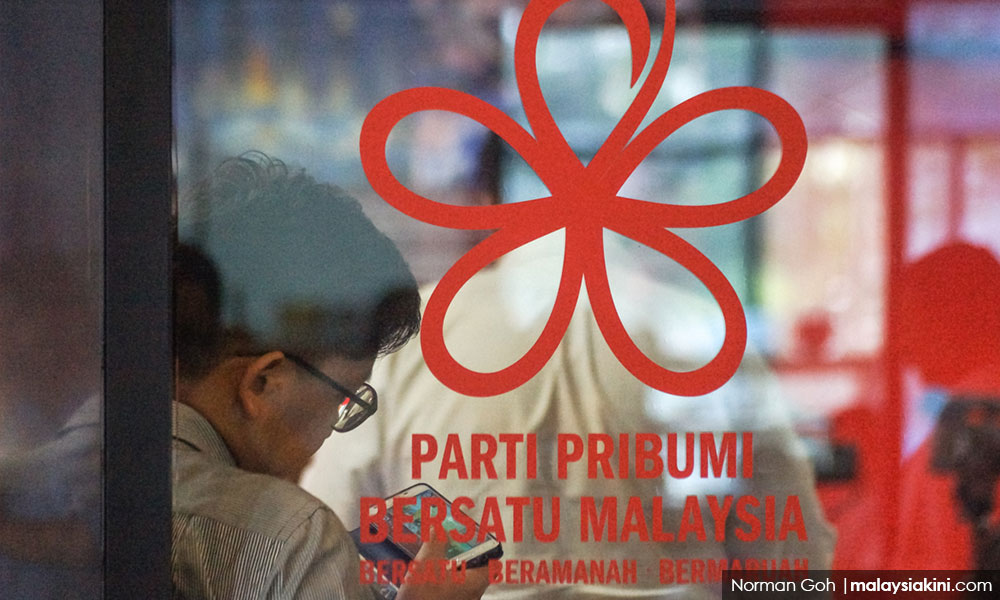
Bersatu central committee member Maszlee Malik has reminded his party's followers of the purpose of its initial struggle and warned that on its current course, the party will be slaughtered in GE15, with Umno the big winners.
Beginning a lengthy Facebook post with a Chinese proverb saying "a mountain cannot have two tigers", Maszlee (photo) questioned what had happened to the purpose of the party's original intention of replacing Umno.
Warning that it lacked the grassroots strength of Umno and PAS, he said by linking up with them, Bersatu may have paved the way for Umno's return to power with party president Ahmad Zahid Hamidi a favourite for the prime minister's post.
"Bersatu entered the political battlefield in the GE14 (2018) as a component party of Pakatan Harapan to contest in 52 seats in the Peninsula using the PKR logo.
"Generally, Bersatu was tasked to contest against Umno, in line with the principles of the original goal of the party to represent the Malay community as well as to provide an alternative, to compete and take the place of a damaged Umno," said Maszlee, who belongs to a minority of the party's members still loyal to former premier Dr Mahathir Mohamad.
Except for Tapah which was traditionally held by MIC, Tanjung Piai (MCA) and his own Simpang Renggam (Gerakan) seat, all other 49 seats were in Malay- majority areas held by either Umno or PAS.
"Of the 52 contested seats, Bersatu won 13 seats, equivalent to 25percent," he said.
Who exactly were Bersatu voters?
As a new party entering the electoral field without a basic track record, Maszlee said it was important to review the profile of the typical Bersatu voters.
Studying the 13 seats won by Bersatu, he pointed out it involved a total of 760,925 voters of whom 74 percent were Malays, 21.3 percent were Chinese and 5.2 percent were Indians and others.
In these seats, Bersatu gained 37 percent of the Malay vote, 83 percent of the Chinese vote, and 58 percent of the Indian vote, he said.
"The overwhelming majority (54 percent) of votes cast for Bersatu were from the original Pakatan Rakyat (excluding PAS voters) supporters and the rest were Umno-BN voters who changed their decision in the hope of a better country. Seven percent came from new voters he said.

Based on Maszlee's examples it is clear that Bersatu won with the help of Harapan voters and the non-Malay communities.
He said that even among the hardcore Pakatan Rakyat supporters only 30 percent were Malay and they would have already voted for Harapan candidates even without Bersatu.
"Bersatu's real challenge was how to maintain the support of those who switched from voting Umno/BN. That is where Bersatu should have built its foundation.
"The existence of Bersatu is essentially to become the successor to Umno's Malay political culture by offering a more transparent and clean alternative," he said.
By-election defeats
Maszlee reflected on the 'mood' of the electorate by observing the Semenyih and Tanjung Piai poll results.
These were two typical BN traditional seats (Umno in Semenyih, MCA in Tanjung Piai) that were seized by Bersatu thanks to the GE14 swing, and the fact that votes were split between BN and PAS.
"However, it is evident that in the by-elections, BN (with PAS support) managed to regain both seats and saw Bersatu lose for various reasons.
"The main reason is that the Umno-BN original voters have returned to voting their original party. In summary, Bersatu, that was originally formed as an alternative party to Umno failed to survive and was unable to compete with Umno-BN in their traditional strongholds."
He said that Bersatu existed (and won) because Umno suffered a deficit crisis of in confidence among Malays. If Umno-BN voters begin to turn to their traditional party, Bersatu is in big trouble."
He also cited the party's failure to increase its membership and branches after winning the GE14, even in Semenyih and Tanjung Piai.
"One thing that needs to be recognised is that any Malay party that wishes to remain strong must have a grassroots base. Basic Malay politics is politics based on grassroots and membership. That is the secret of UMNO and PAS's strength."
"The sooner Umno-BN rises, the more it will rebuild its strengths, regain the confidence of its traditional voters, the more it will pose a problem for Bersatu."
Bersatu losing ground all the time
Maszlee said the party must admit that those who voted Bersatu wanted a new Malay political culture with more transparency and integrity.

"Now, we fear that they will all regret the fact that Bersatu is guilty of conspiring with the party they had earlier voted against."
He said that the current situation, where Bersatu's president Muhyiddin Yassin has taken power through a Perikatan Nasional coalition is facing the way for Umno to rise like a phoenix from the ashes.
"Umno has already received the gift of two states that were ruled by Harapan (Johor and Malacca), as well as a state dominated by them (Perak) as well as leadership of many important GLCs."
"This is not just a lifeline, it is helping the re-election of Umno to the maximum.
He said that with this state of affairs, by the time GE15 came around, Bersatu could be ditched and slaughtered by Umno.
The next general election need not be called until 2023. However, a no-confidence motion in the Dewan Rakyat could trigger early elections.
"I expect Umno to rebel by maintaining the status quo in Bersatu seats giving Umno a chance to return to power and appointing Zahid Hamidi as the ninth prime minister based on the current composition of the seats."
This will means the biggest and historic loss of Bersatu in the GE15," he said, calling on members to think of the party's future, and not of the gains of today. - Mkini


No comments:
Post a Comment
Note: Only a member of this blog may post a comment.